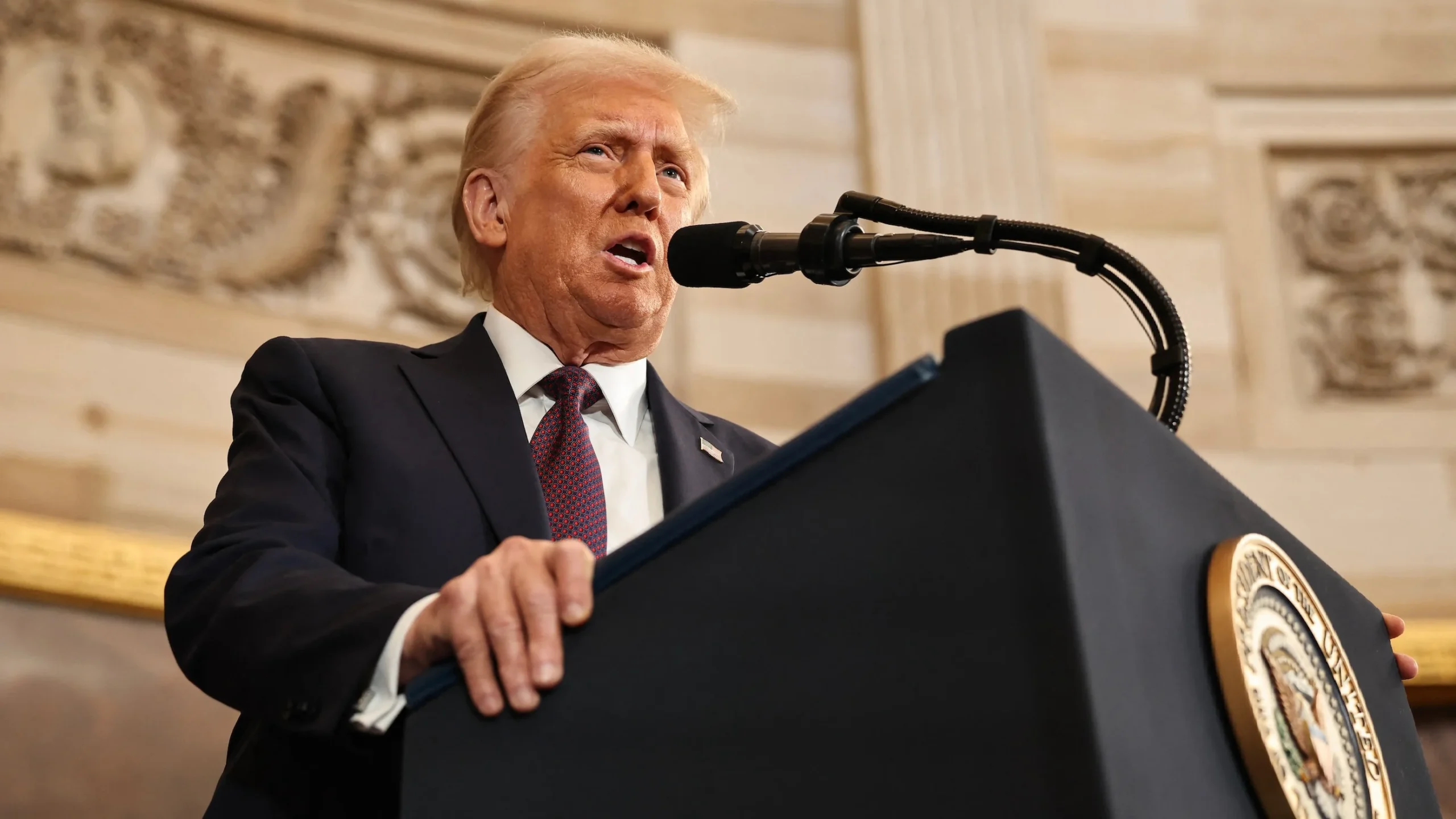
The Impact of Trump’s Tariffs on the Tech Industry: A Deepening Crisis
As the United States continues to grapple with the effects of President Trump’s punishing import tariffs on China, which have reached an astonishing 104 percent, sectors of the tech industry are bracing for even more pain. These tariffs, which have already strained supply chains and escalated the cost of consumer goods, are now casting a long shadow over critical manufacturing sectors—especially the semiconductor industry.
In the latest twist, Trump has escalated tensions by threatening Taiwan Semiconductor Manufacturing Company (TSMC)—the world’s most influential silicon chip manufacturer—with an additional 100 percent tariff unless the company agrees to build a semiconductor plant on U.S. soil. Speaking at the Republican National Congressional Committee, Trump outlined this ultimatum, stating, “If you don’t build your plant here, we’re going to hit you with another 100 percent tax.” This demand would be layered on top of the existing 32 percent tariff imposed on imports from Taiwan.
The global semiconductor market is overwhelmingly reliant on Taiwan, which is home to approximately 60 percent of the world’s chip production. Within Taiwan, TSMC is the largest and most advanced player, producing cutting-edge chips that power everything from smartphones to gaming consoles. The U.S., by comparison, manufactures only around 12 percent of the world’s chips, which leaves the country vulnerable to any disruption in supply. As a result, the tech industry is already experiencing delays, with companies like Razer halting shipments of laptops and both Nintendo and Framework postponing the release of new products like the Switch 2 and Framework 12 laptop.
TSMC, which had already planned to establish fabrication plants in the U.S. under the CHIPS Act—a $52 billion semiconductor stimulus package passed during President Biden’s tenure—had previously announced a $100 billion investment in U.S.-based manufacturing facilities. These plants, primarily located in Arizona, were intended to boost domestic semiconductor production and reduce reliance on foreign suppliers. However, the company’s American production capacity is already fully booked for the next two years, leading to concerns that the U.S. may not be able to meet its growing demand for electronics within the coming years. As a result, the cost of consumer electronics is expected to skyrocket due to both the tariffs and the continued reliance on imports.
Countries such as South Korea and Japan, both key players in the semiconductor supply chain, are reportedly seeking to negotiate with Trump to soften the impact of these tariffs. However, China’s position as the world’s leading manufacturer of finished goods places it in a more advantageous position for trade talks. In response to U.S. tariffs, China has enacted its own retaliatory tariffs, further complicating trade negotiations. This ongoing trade conflict is likely to result in continued disruptions and price increases, as the U.S. finds itself increasingly dependent on foreign-made goods.
With the tech industry facing mounting pressure from tariffs, production delays, and supply chain disruptions, the outlook for consumers is bleak. Expect higher prices for everything from smartphones to gaming consoles, and brace for a long period of uncertainty as the U.S. navigates these trade challenges.




